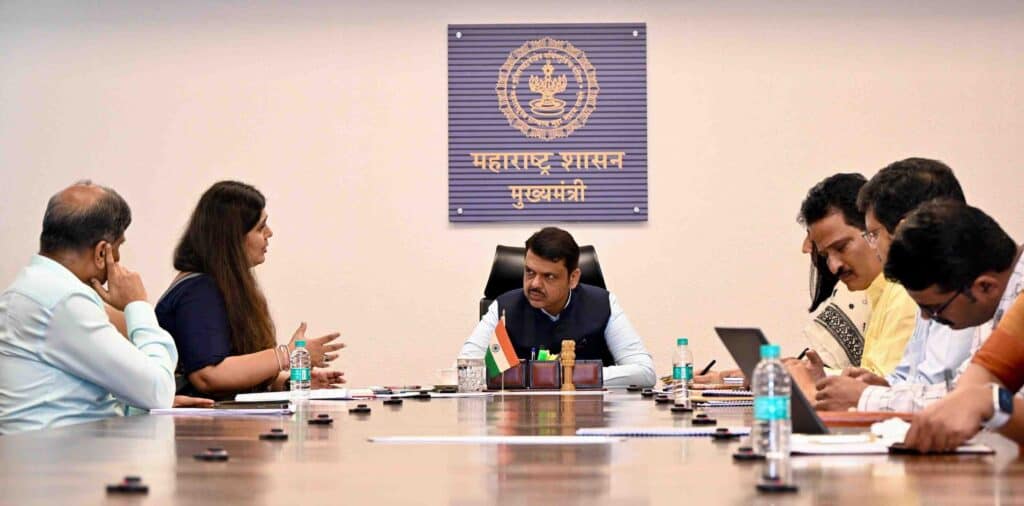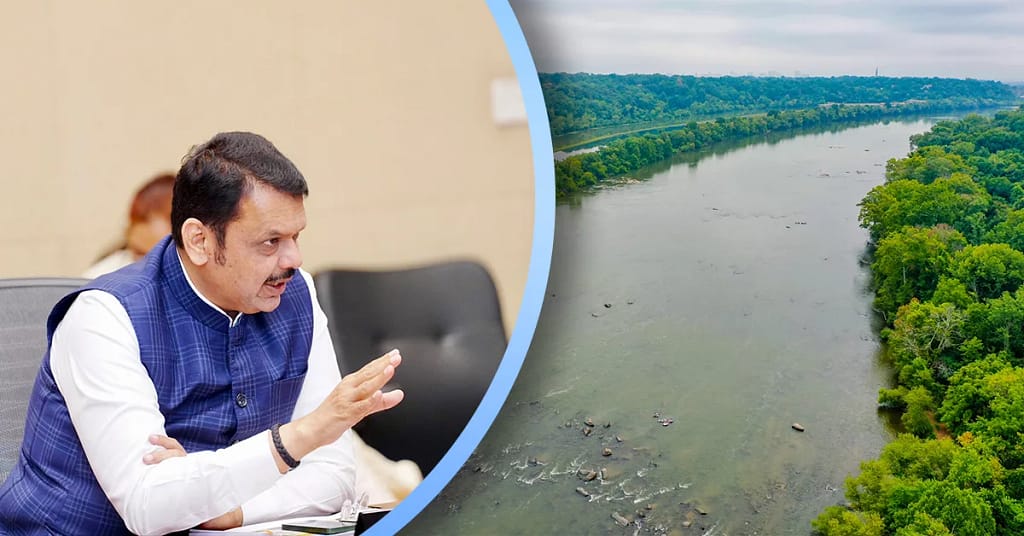Industrialization and urbanization are the drivers of growth, but their impacts on the environment and ecology often inflict harmful consequences on the population and economy. The choking/degradation of rivers is one such side effect of rapid development that Maharashtra has been witnessing in many places. Uncontrolled use of water, sewage discharge into rivers, lack of planning, and encroachment have led to the death of many rivers in the state. Therefore, rejuvenating these rivers will be crucial not only from an environmental perspective but also from social, economic, and health perspectives. Keeping this need in mind, the Devendra Fadnavis government took a major decision to establish the Maharashtra State River Rejuvenation Authority (MSRRA).
The Minister of Environment and Climate Change submitted a proposal to Chief Minister Devendra Fadnavis on August 5, 2025, to establish the Maharashtra State River Rejuvenation Authority. Approving the proposal, the Chief Minister expressed confidence that this was a significant step toward reducing pollution and rejuvenating the state’s rivers and that the authority would be responsible for the maintenance and revival of the natural flow of rivers. This decision by the state government will help revive 50 highly polluted rivers and their tributaries in the state. After accomplishing numerous water conservation campaigns across the state, the waterman Devendra Fadnavis’ next focus area is river rejuvenation. In 2018, during his first term as CM, Fadnavis created the Maharashtra Water Planning Model, aimed at sustainable water resource management, conservation, and equitable distribution through a number of initiatives involving local people, such as Jalyukt Shivar, silt-free dams, silt-free rivers, river linking projects, the Water Grid Project, and so on. Establishing the River Rejuvenation Authority is another crucial decision by the waterman Devendra Fadnavis, which will help to prevent flooding, pollution, and health risks in the urban areas.
The Chief Minister will be the Chairperson of the Authority, and the Environment Minister will be the Vice-Chairperson.
Due to increasing population, industrialization, and climate change, the state’s rivers are under immense pressure. According to a report submitted by the Central Pollution Control Board, more than 50 rivers in the state are highly polluted, with more than 50 percent of sewage discharged into them untreated. To deal with this alarming situation, CM Devendra Fadnavis formed an independent and competent authority with himself as the chairperson and the environment minister as the vice-chairperson. This state-level committee will include technical, economic, legal, and environmental experts. It will receive technical support from the Member Secretary of the Maharashtra Pollution Control Board and prestigious institutions such as the IITs. This high-powered committee will be responsible for river basin management, removal of encroachments in rivers, silt removal, pollution control, and recommending projects for Maharashtra for national schemes.

River Rejuvenation Program and Water Policy to guide the State Water Administration
The concept of river rejuvenation is not new to Devendra Fadnavis. During his tenure as Chief Minister from 2014 to 2019, he implemented the river revitalization program under Jalyukt Shivar Abhiyan and desiltation of rivers, streams, and drains. Earlier, the flow of rivers used to be limited due to heavy siltation, which would also result in reduced water storage capacity and groundwater recharge. This led to the desiltation of water bodies in the villages through the Gaalmukt Dharan and Gaalyukt Shiver programs.
Devendra Fadnavis has also brought impactful reforms in the state’s water policy. In 2003, the then government introduced the Maharashtra Water Policy, which was slightly improved in 2011. But Devendra Fadnavis made major changes in this policy, especially with respect to climate change effects, increasing water scarcity, social unrest, etc., to introduce a whole new water policy for Maharashtra in 2019. The new policy addresses issues like access to clean water, equitable distribution, conservation of water ecosystems, water use efficiency and productivity, and protection of the common man’s water rights. This policy still guides the state’s water administration. His river-linking project is one game-changing initiative that will eliminate water distress in Maharashtra.
Related articles:

